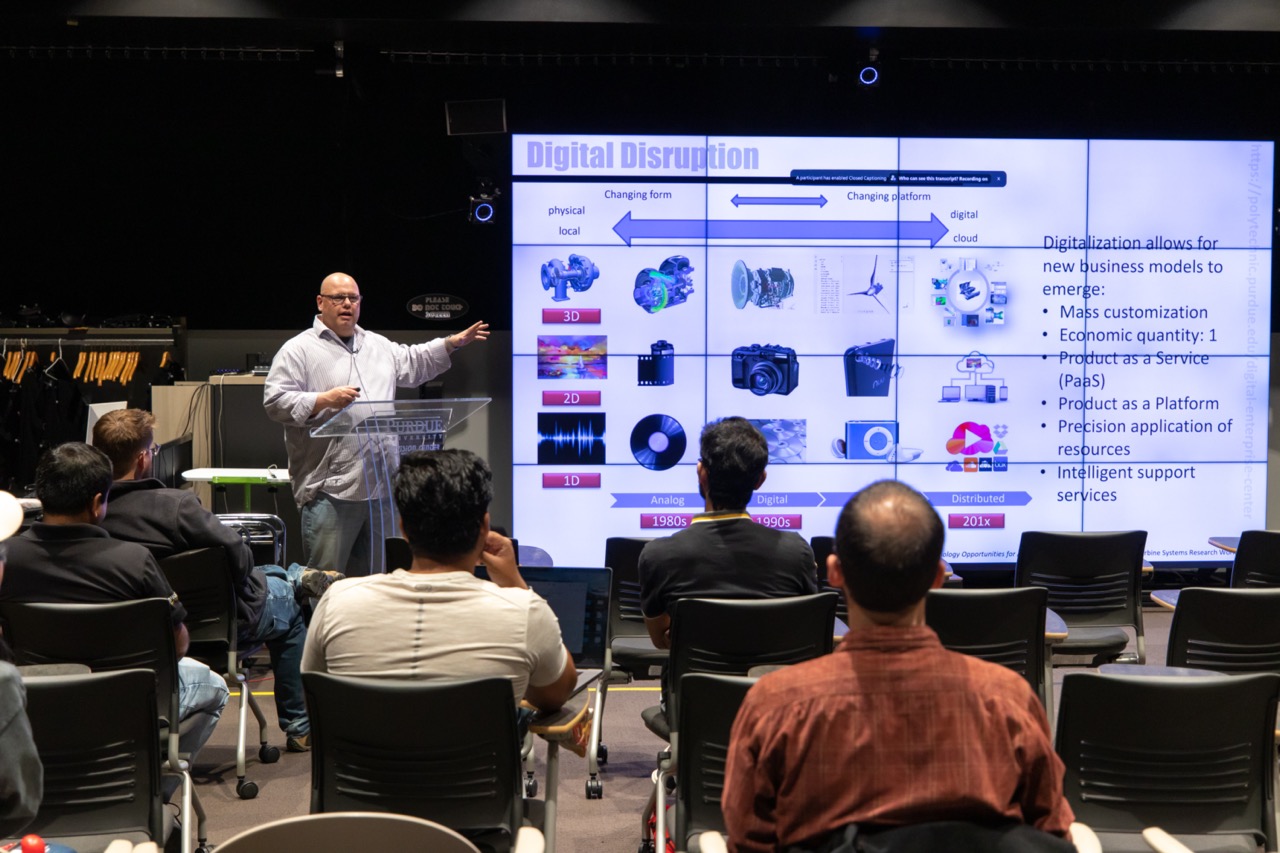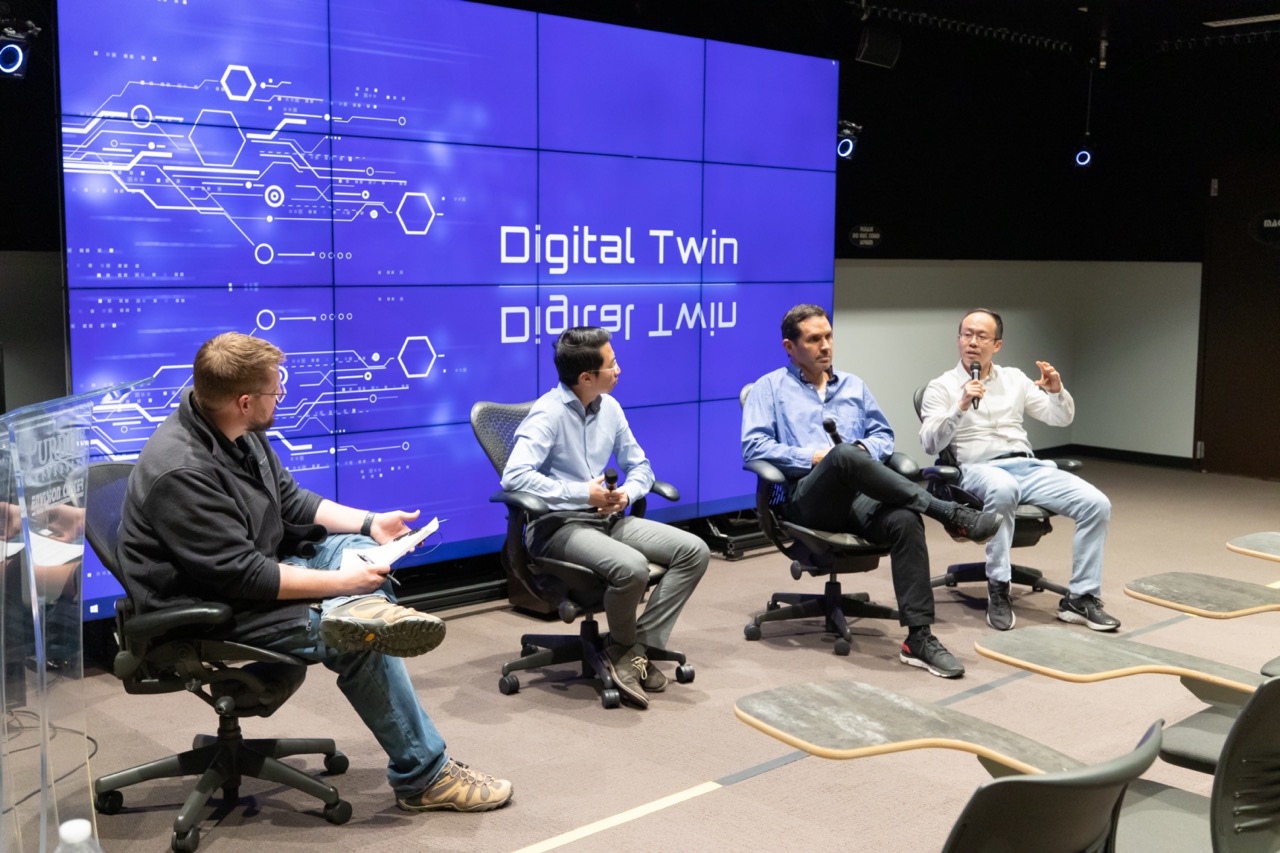RCAC hosts digital twin symposium featuring Purdue researchers, NVIDIA
The Rosen Center for Advanced Computing (RCAC) held a symposium on digital twins at the Envision Center on April 11 featuring presentations from Purdue faculty and NVIDIA.
A digital twin is a virtual representation of a physical object that is used to model or simulate what’s happening to the object. The symposium was designed to explore how RCAC’s campus cyberinfrastructure and the Envision Center can support and enable faculty partners to use digital twins in their science.

A number of Purdue faculty researchers spoke at the symposium about how their specific domains are using and can benefit from digital twins. Speakers included:
- Nathan Hartman, Dauch Family Professor of Advanced Manufacturing and Head of the Department of Computer Graphics Technology, who spoke about how digital twins are used in the manufacturing realm;
- Jian Jin, associate professor of agricultural and biological engineering, who discussed Purdue’s use of crop sensors to create digital twins in agriculture;
- Songlin Fei, professor of forestry and natural resources, who spoke about the use of digital twins in forestry;
- Daniel Aliaga, associate professor of computer science, who discussed how he uses digital twins in his deep generative modeling of urban spaces; and
- Ziran Wang, assistant professor of civil engineering, who discussed the use of digital twins in connected and automated vehicles.
- Zoe Ryan from NVIDA presented about the latest developments that support research that relies on digital twins and how NVIDIA’s Omniverse platform can be used to build digital twins.
Partnerships such as this alongside open communication channels with Purdue researchers have been instrumental in forming the AI vision at RCAC. Future events and trainings will be created to support this vision.
“Modeling, simulation, AI, augmented reality, and digital twins are all computational techniques that more and more Purdue researchers use on a daily basis," said RCAC Executive Director Preston Smith. "We’re excited to bring together researchers, students, and our technology experts from RCAC and Envision to learn from each other and plant the seeds of future collaborations.”
Smith also notes that digital twins can be a powerful tool when paired with AI. To support the growth in AI, RCAC has invested substantially in AI computing resources, adding over 100 GPUs to the Gilbreth Community Cluster.
The event concluded with a panel discussion moderated by RCAC lead research data scientist Geoffrey Lentner and featuring several faculty speakers.

To learn more about RCAC resources, contact rcac-help@purdue.edu.
